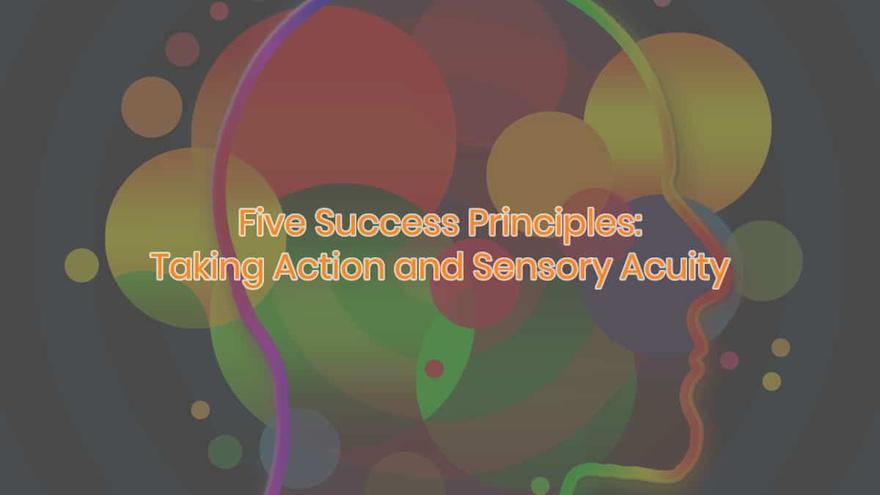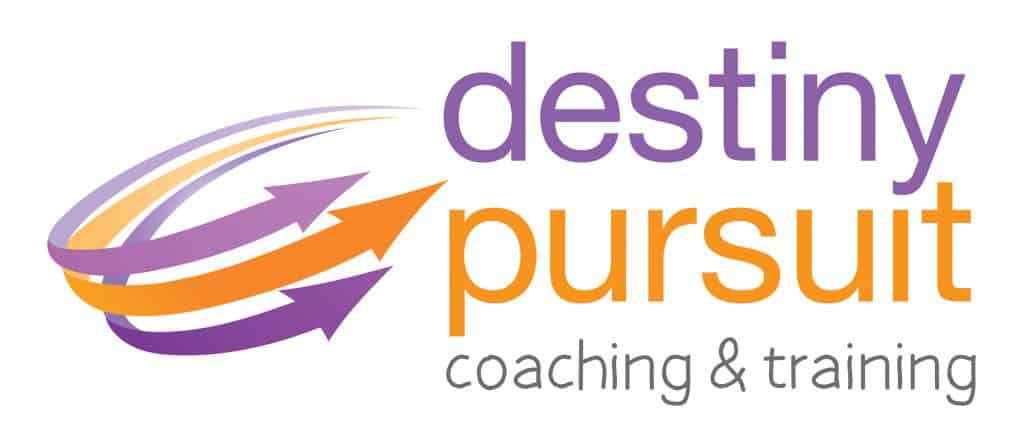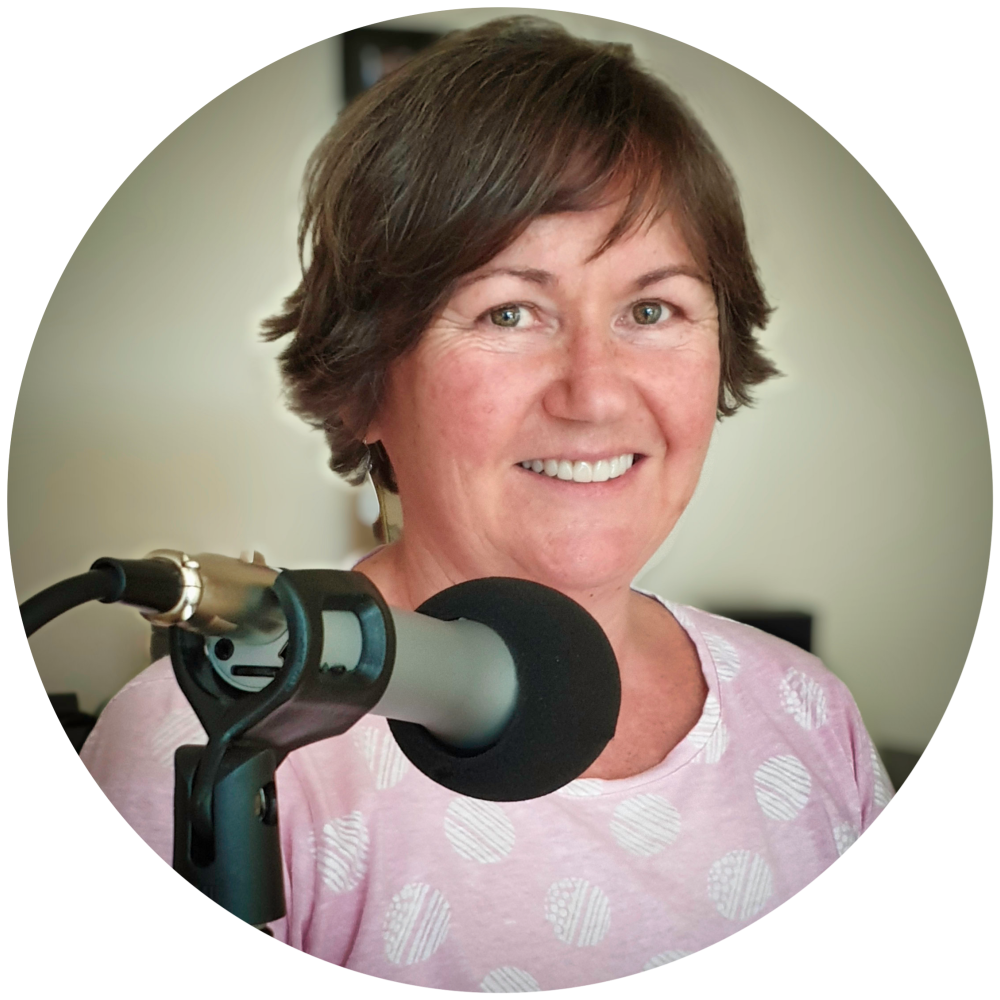Taking Action and Sensory Acuity - NLP Matters, Episode #012

Last week, we focused on the first of the Five Principles for Success, which is Knowing Your Outcome. This is the place we all need to start from on our way to achieving success.
Now, that we are very clear on our outcome or goal, it’s time to take massive action! And, when we are taking action it is vital that we continue to use our sensory acuity.
These are the next two principles of the Five Principles for Success that we are going to explore in this episode and how we can apply them using NLP techniques to accurately model success and create results in our own lives.
Listen to the podcast to learn more.
Listen to the Podcast
Here are some key takeaways from this episode:
Taking Massive Action
- The difference between someone who achieves their goals and someone who doesn’t achieve their goals is the action they are willing to take to get there.
- As Will Rogers from the Wild West said: “Even if you are on the right track you will get run over if you just sit there”. The best-laid plans lay on the kitchen bench unless you get up off the couch and take action.
- What is massive for one person may not be massive for another. It is better to take purposeful and sustainable action because even little steps can make a huge difference, every single day. It is taking purposeful action consistently that will get you there in the end.
- It is important to have a plan, a map that outlines how you will make the journey from where you are now and will get you to where you have chosen to go. This map or plan is vital for tracking your progress.
- Taking action is not about doing it perfectly. If that is your goal, you will be way off track. The dance between purposeful action and sensory acuity is all about taking action first then measuring progress on the way.
- You cannot wait until you know how before you start to take action. You have to get started and use your sensory acuity.
- The key is to have some criteria around what action you should be taking. Action without criteria can end up being busywork that whilst it may need to be done is never-the-less not focused on your goal.
The Eisenhower Matrix
An example of criteria is the Eisenhower or Covey Matrix, where all actions are classified as:
- urgent and important
- urgent and not important
- not urgent and not important
- not urgent and important
This Eisenhower Matrix shows us how we often get caught up in actions that in terms of our goals are urgent but not really important – quadrant two, because these actions don’t take us any closer to our goals, but we do them because of the urgency that is attached to them.
Or, sometimes we get caught up in actions that are not urgent and not really important – quadrant three, – “busy work” because at least we are doing something and it might even make us feel good, but again we are no closer to our goal.
And then again we might spend our time doing things that are urgent and important – quadrant one, but if we are constantly in this quadrant, it is not sustainable in the long term because eventually we just run out of fuel.
The real gold is understanding that the more time we spend in the fourth quadrant – doing the action that is not urgent but is important, the better quality of life we will have. These are the actions that include planning, being future focused, working on a business and not in it, working on our values, and actioning the steps we have identified will take us to our goal.
Remember, successful people make time to take care of the big picture, the important and not urgent actions which ultimately is what will make everything else happen.
In terms of taking action there are some golden rules:
- Rule number 1: Say yes then work out HOW
- Rule number 2: Commit to action – every day!
- Rule number 3: Get a mentor – find someone who has already done/is doing it – they know how.
- Rule number 4: develop some criteria around your actions
Exercise
- Think of a goal. It can be a goal you have now, or one you have had in the past, or one you would like sometime in the future, act as if this is your goal RIGHT NOW!
- Write down the last thing you need to do before you achieve your goal.
- Write down the first thing you will do on your journey to achieve this goal.
- Brainstorm the steps in between you will need to take.
- Group the steps under categories. A great strategy is to use sticky notes to do this.
Here we are capturing a list of EVERYTHING that COULD be done, not everything that will be done. Keep this list in one place. Recognise that 20% of what we will do will yield 80% of our results.
Sensory Acuity
- Sensory Acuity is not about checking how we feel internally. It is about what we can perceive using our 5 senses – sight, hearing, touch, smell and taste.
- If you can see the evidence then another person standing with you can also see the evidence. If they can’t then it is not the type of evidence you are seeking.
- We must have the sensory acuity (awareness) to notice what is working and what’s not working. This means having the awareness of whether what we are doing is being effective. Effectiveness is measured in terms of: Is it moving us closer to our goals or not? Is it producing the results we are wanting or not?
Knowing Your Outcome - starting with the end in mind – is so important to success, but NLP teaches us it’s not much use if we don’t take action and use our sensory acuity to keep us on track.
In our next episode, we will focus on the fourth of the 5 principles for success – Behavioural Flexibility.
Listen to the Podcast
Joanne Clark
Joanne Clark is an Internationally accredited Master Trainer of NLP who has been delivering NLP training since 2011. Being on her feet in front of training rooms is where Jo loves to be and her passion for inclusive and immersive training that delivers outstanding learning outcomes is apparent to everyone in her training rooms. On average Jo delivers 140 days of training per year in addition to online webinars, guest speaker events and group coaching.
“NLP is at the core of all my training and coaching, it is at the core of who I am, how I interact and connect with people. I am absolutely passionate about spreading the NLP tools across the planet as I endeavour to support Robert Dilts’s vision of Creating a world to which people want to belong.” Joanne Clark
Certified Master Trainer of NLP; Master Practitioner NLP, Hypnotherapy & Matrix Therapies; Performance Coach; Cert IV Coaching; Advanced Practitioner in Coaching; Cert IV in Business; BA(Hons); Majors in Sociology and Psychology; Parent Education Leadership Training (PELT) Certificate; Mother of four children; Private Pilot (PPL); Diploma in Life Coaching


0 comments
Leave a comment
Please log in or register to post a comment